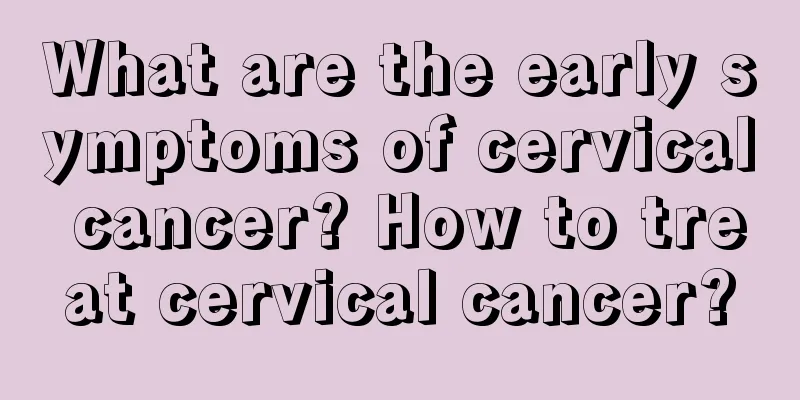What kind of care is needed for small cell lung cancer in daily life

|
What kind of care is needed for small cell lung cancer in daily life? The treatment of small cell lung cancer is a long and arduous process. In addition to actively cooperating with the doctor's treatment, the patient's care cannot be ignored in daily life. Let's take a look at it today: Fever is one of the main symptoms of small cell lung cancer. Patients should be advised to keep warm and prevent colds to avoid pneumonia. For irritating coughs, cough suppressants can be given. When patients have persistent coughs at night, they can drink hot water to relieve irritation in the throat. If there is coughing up blood, hemostatic drugs should be given. When coughing up blood in large quantities, notify the doctor immediately, and tilt the patient's head to one side, clear the blood in the mouth in time to prevent suffocation, and assist the doctor in rescue. Patients often have tumors metastasized to different parts of the body, causing different symptoms, and should be carefully observed and given appropriate care. For example, if the patient has liver or brain metastasis, he or she may suddenly become unconscious, have convulsions, or have blurred vision. Nurses should promptly detect the disease and provide symptomatic treatment. Edema may occur due to malnutrition and low plasma protein. Edema should be reduced by increasing nutrition and raising the patient's limbs. Patients generally have poor nutritional status, sometimes with systemic edema, which can easily lead to bedsores, which spread rapidly and are difficult to cure. It is particularly important to prevent bedsores. Reduce local pressure, change body positions on time, and use air rings, soft pillows, etc. to cushion the parts of the body that are prone to pressure to avoid long-term pressure. Keep the skin clean, especially for patients with incontinence, keep the bed clean and flat, and use a baking lamp to irradiate the broken skin to keep the local area dry. Patients may experience anxiety, fear, sadness and other psychological symptoms, and often feel indifferent and lonely. We must have a high degree of compassion and responsibility, and strive to create a warm and harmonious recuperation environment for patients, place them in single rooms, speak in a friendly and sincere manner, encourage patients to express their psychological feelings, provide timely guidance, and actively introduce information about the improvement of their condition to patients. |
<<: What are the key points in nursing for small cell lung cancer
>>: What should people with small cell lung cancer not eat
Recommend
Can patients with primary liver cancer eat eels? Revealing the clinical manifestations of liver cancer
Liver cancer is a common malignant tumor with a v...
What to do if there is formaldehyde smell in the house
If you find that there is a smell of formaldehyde...
Is it good to drink porridge regularly?
Porridge is a very common food in our lives. With...
How to eat snake gallbladder? Two ways to eat snake gallbladder
People who eat snake meat must know about snake g...
There are red bumps on the inside of the tongue
There are red bumps on the tongue, and the common...
What are the methods to remove dental plaque
We all hope to show beautiful white teeth when we...
Brief analysis of dietary considerations for nasopharyngeal carcinoma patients after chemotherapy
Chemotherapy is a common method for treating naso...
Can boiling water kill bacteria on egg shells?
Eggs are a type of egg we often eat. They have a ...
How to add astigmatism to myopia lenses
Everyone knows that when fitting glasses, doctors...
What are the methods for cooking without sticking to the pan
It is very annoying when food sticks to the pan w...
Will vitreous opacity cause blindness? Early detection and treatment are needed
Many people know very little about vitreous opaci...
Apply banana mud to face for facial allergy
There is a saying that people with facial allergi...
What are the symptoms of endometrial cancer patients
Aunt Wang is 51 years old and is almost at the ag...
What harm does defoaming agent do to people
Defoaming agent is a kind of agent that can inhib...
What are the symptoms of cervical cancer
1. What are the causes of cervical cancer? Many p...









